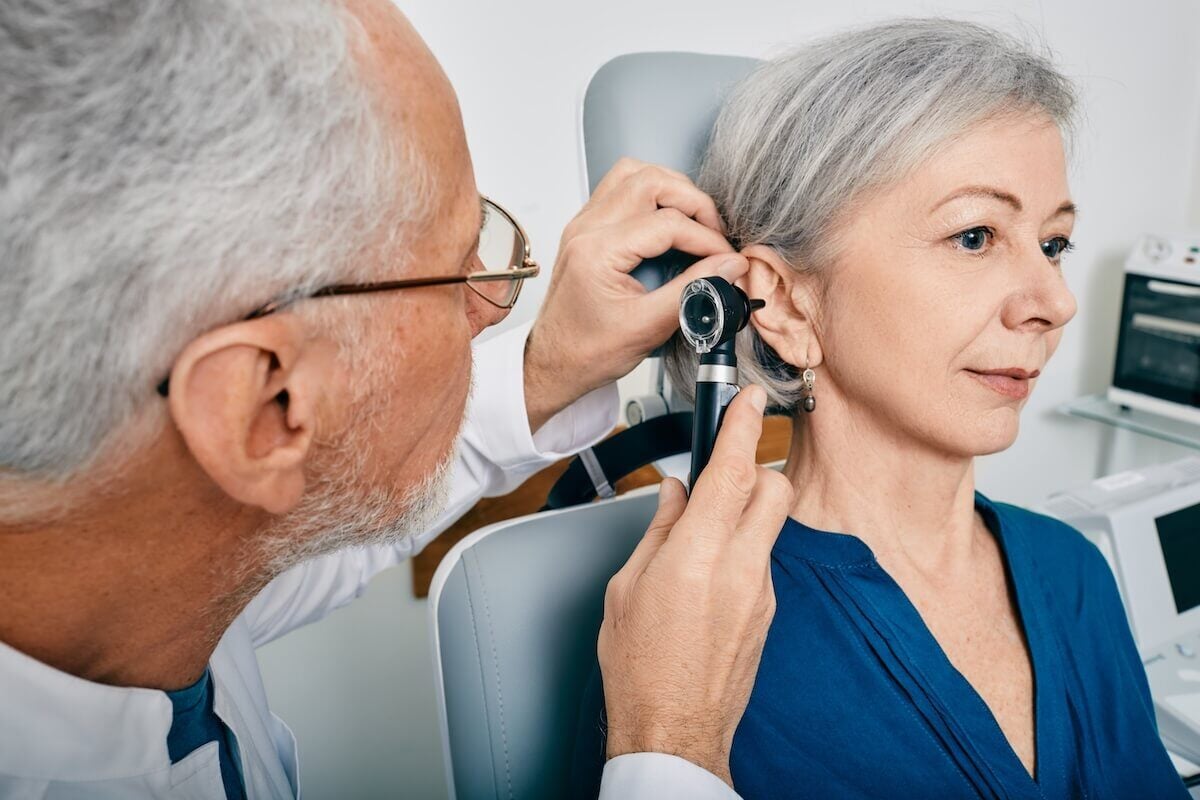Dementia affects memory, thinking, and the ability to communicate verbally, making it challenging for individuals to express themselves and understand others. This can lead to frustration, isolation, and misunderstandings for both the person with dementia and their families. It's essential to find alternative and effective communication methods to maintain and strengthen these relationships.
Recent Posts
7 Ways to Communicate Beyond Words for Those Living with Dementia
Topics: Memory Care, Helpful Tips
Unraveling the Link Between Tinnitus and Dementia
Both tinnitus and dementia can significantly impact the quality of life of older adults. Understanding these conditions, their symptoms, and their potential connections is crucial for promoting better health outcomes. This is especially important for families and caregivers who play a pivotal role in supporting the well-being of their older loved ones.
Topics: Memory Care, Health
Understanding Parkinson’s Disease and Dementia
Parkinson’s disease is a degenerative condition that develops over time in different stages. Known most for its association with motor skills, which can lead to tremors and slowed movement, many people don’t realize there is a strong link between Parkinson’s and dementia that can affect cognitive abilities.
About half of those with Parkinson’s will be affected by some form of cognitive impairment. As the disease progresses, people living with Parkinson’s will develop more severe memory and thinking problems. This is where Parkinson’s relation with dementia begins.
Unfortunately, one risk factor for Parkinson's disease is age. Although most people with Parkinson’s first develop the disease around 60 years old, about 5 to 10 percent of those with Parkinson's have "early-onset" disease, which can begin before the age of 50.
While Parkinson’s disease and memory loss may not be commonly associated with each other, recent studies have shown that anywhere from 50 to 80 percent of those with Parkinson’s may develop a form of dementia.
Topics: Memory Care, Health
3 Steps to Take Following a Dementia Diagnosis
Receiving a dementia diagnosis can be an emotional and overwhelming experience for the individual and their family. However, there are steps you can take to ensure a better quality of life for everyone involved.
In order to navigate this challenging time with grace and compassion, you should educate yourself on your loved one’s condition, gather a supportive system, and ensure you and your family are prepared for the future.
Topics: Memory Care
Are There Signs of Dementia Other Than Memory Loss?
Many people associate dementia or Alzheimer’s disease with memory loss. While it’s true that memory loss is a significant component of these conditions, they can involve other symptoms as well. Experiencing memory loss does not always mean you have dementia, and vice versa; having dementia does not mean you will only experience memory loss.
Topics: Memory Care
How Animal-Assisted Therapy Benefits Those with Dementia
Whether a dog, cat, or even a fish, owning a pet has various benefits that can positively impact mental and physical health. Being a pet owner or simply spending time with an animal brings companionship, love and joy, and caring for an animal provides a sense of purpose. Animals are also judgment-free; by nature, animals are uncritical and loyal, making them excellent companions for all walks of life.
For all of these reasons, animal-assisted or pet therapy has been known to benefit people living with varieties of emotional, mental, and physical problems. Furthermore, new studies and advancements show that animal-assisted therapy can significantly benefit those with dementia.
Topics: Memory Care
New Year’s Resolutions That Can Reduce the Risk of Dementia
When the ball drops on New Year’s Eve, it signals the beginning of a brand new chapter; a clean slate for everyone to refresh their daily routines, improve upon themselves, and start on their New Year’s resolutions! Resolutions are personal goals to set for yourself, whether you want to improve your health or make new strides in your career, friendships, or happiness.
Topics: Memory Care
Brickmont Assisted Living Explores the Benefits of Music in Memory Care
When it comes to music and dementia, there are many benefits to playing music within a memory care community. Not only can it help a person living with dementia improve their cognitive function, but it also has emotional benefits like reducing agitation and anxiety. These factors make music an essential part of any memory care plan.
Topics: Memory Care
Recognizing a Memory Impairment in an Older Family Member
It can be easy to dismiss the early signs of memory impairment in an older family member as part of the natural aging process. While aging can affect memory, such as forgetfulness, Alzheimer’s disease and other forms of dementia exhibit more distinguished signs. Essential to the health of your older family members is your ability to differentiate between forgetfulness and something more severe.
Topics: Memory Care, Health
Dementia Care: How to Respond to Unexpected Behavior Changes
When a person is living with dementia, behaviors can change over time – or even from day to day. Whether you are providing care within your home or are looking to learn more about the signs to watch for, we have prepared this helpful list of behavior changes that could be due to dementia.
Topics: Memory Care, Caregiving











.png)